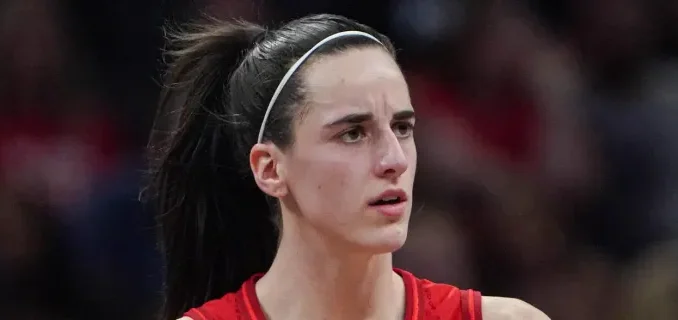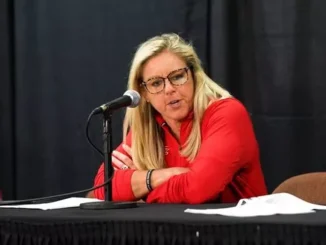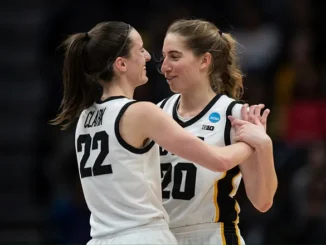
Golden State Warriors’ forward Draymond Green, known for his defensive prowess and vocal leadership on and off the court, has recently expressed his opinion on the WNBA, specifically addressing the situation with Caitlin Clark and the need for an ‘enforcer’ to protect star players like her.
Caitlin Clark, a standout player for the Indiana Fever, has quickly become one of the most electrifying talents in the league. Her offensive skills and court vision have drawn comparisons to some of the best in the game, and she has become a target for opposing defenses trying to limit her impact. However, this has also led to more physical play and rough tactics aimed at disrupting her rhythm.
In a recent interview, Draymond Green emphasized the importance of having an enforcer on the team to protect key players like Clark. “When you have a player as talented as Caitlin, you need someone who can set the tone and make sure she doesn’t get pushed around,” Green said. “It’s not about starting fights, but about making sure the other team knows there’s a consequence for trying to play dirty.”
Green’s comments come at a time when the physicality in the WNBA is a topic of increasing discussion. While the league has made significant strides in promoting the skill and athleticism of its players, the physical nature of the game can sometimes overshadow these aspects. Star players often find themselves the target of hard fouls and aggressive defensive strategies designed to throw them off their game.
For Caitlin Clark, the added physicality is something she has had to adapt to quickly. “I know teams are going to come after me,” Clark said in a recent press conference. “It’s part of the game. But having teammates who have my back, who can help me out when things get rough, that’s really important.”
Green’s idea of an enforcer isn’t new to basketball. Historically, players like Charles Oakley, Rick Mahorn, and more recently, Green himself, have taken on roles where they provide physical and emotional support for their teammates. These players are often tasked with doing the dirty work—setting hard screens, grabbing tough rebounds, and sending a message that their stars won’t be intimidated.
The concept of an enforcer goes beyond just physicality. It’s about leadership, toughness, and a willingness to stand up for teammates. In the context of the WNBA, having a player who can fulfill this role could be particularly beneficial. The league’s stars, including Clark, are incredibly talented but ensuring their longevity and continued success often requires a supporting cast that can handle the more rugged aspects of the game.
Green’s call for an enforcer in the WNBA aligns with his broader views on the game. He has often spoken about the importance of mental and physical toughness in basketball. “Basketball is a beautiful game, but it’s also a physical one,” Green explained. “You need a balance. Skill and finesse are important, but so is grit and toughness.”
The Indiana Fever, with Caitlin Clark at the helm, have the potential to be a dominant force in the league. Adding an enforcer to their roster could provide the necessary balance to ensure their star player can shine without undue pressure or fear of injury from overly aggressive opponents. It’s a strategic move that could pay dividends in terms of both team success and player development.
Draymond Green’s perspective is rooted in his own experiences and understanding of what it takes to succeed at the highest levels of basketball. His advice for the Fever and for other WNBA teams is to recognize the importance of protecting their key players, not just through tactical play but also through strategic roster decisions.
In conclusion, Draymond Green’s call for an enforcer to protect Caitlin Clark highlights a critical aspect of basketball that often goes unspoken but is essential for the success and longevity of star players. As the WNBA continues to grow and evolve, incorporating elements of toughness and protection into team dynamics could be a key factor in maintaining the health and effectiveness of its brightest stars. Green’s insights offer a valuable perspective that could help teams like the Indiana Fever maximize their potential while ensuring their top players, like Caitlin Clark, can perform at their best without unnecessary physical tolls.



Be the first to comment